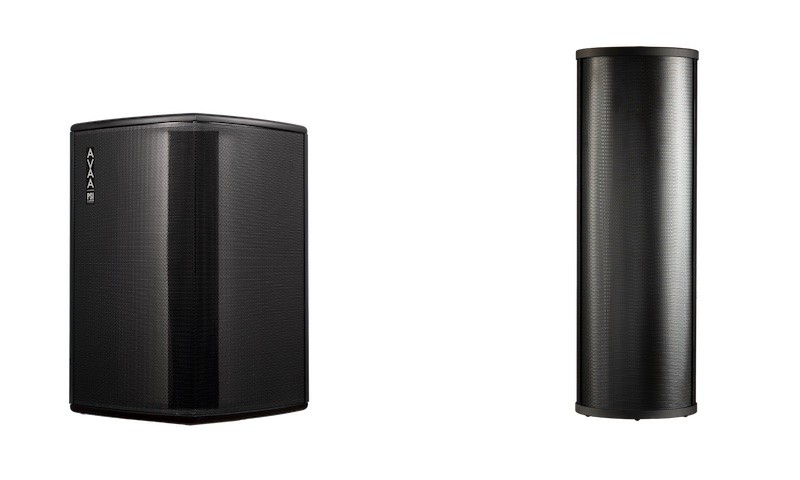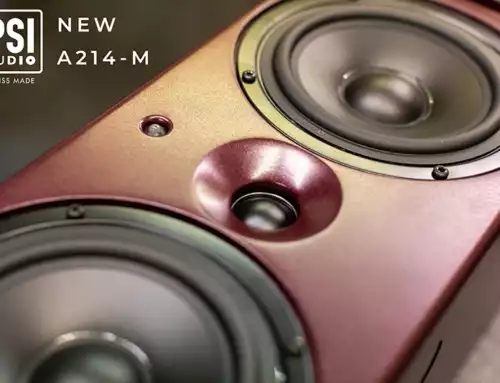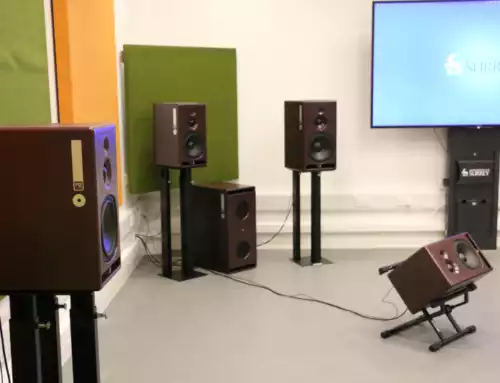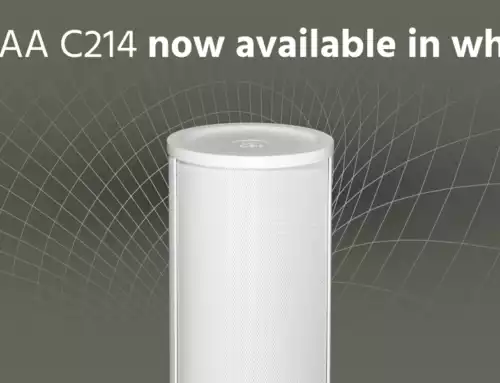PSI Audio AVAA C214 and C20: active bass traps for every application
PSI PSI Audio has expanded its AVAA range with the introduction of the AVAA C214. The innovative active bass trap technology is now available in two forms, each with its own features and optimised for certain applications. The original AVAA C20 is the choice for most audio professionals with its purist, all-analogue operation that essentially acts like traditional acoustic elements (only better) in that it does not change once installed. The new AVAA C214 is catering to audiophile listeners who prefer to make adjustments to the bass trap’s setup in order to tailor it to personal preference. Both still operate on the same unique principle, acting like a hole in the wall and effectively sucking modes out of the room.
The contents of this press release
- PSI Audio provides outstanding acoustic treatment with AVAA
- Active acoustics for every application: the AVAA technology
- Room modes be gone: the AVAA principle
- AVAA C20: the professional origin
- AVAA C214: the audiophile lovechild
- Precision quality from Switzerland
Yverdon-les-Bains, 30th August 2023 – The innovative PSI Audio technology AVAA (Active Velocity Acoustic Absorber) has revolutionised the treatment of room modes since the inception of the AVAA C20 in 2016. With the recently introduced AVAA C214, AVAA has become a family.
Active acoustics for every application: the AVAA technology
The PSI Audio AVAA family of products tackles the biggest challenge in acoustics: room modes. These low-frequency resonances can seriously tarnish the overall acoustic image of a room, but are very hard to come by with traditional passive acoustic treatment. The AVAA family are unique active broadband absorbers that work in the low frequency spectrum starting at 15 Hz without the need for calibration by the user. The devices are extremely efficient, achieving the same effect as passive absorbers multiple times their size. Since it does not operate with anti-sound, AVAA simply cleans the room and not just a clearly defined sweet spot; it even helps reduce sound emissions from the room. AVAA is one of those rare cases where the technology just takes care of things for you.
Room modes be gone: the AVAA principle
While the effect of the PSI Audio AVAA C20 and AVAA C214 can seem like magic, the underlying principles are firmly rooted in science, of course. The devices impose a very low acoustic impedance in front of them, effectively acting like a hole in the wall. They suck those resonances in and remove the energy from the room. The result is impressive from a frequency point of view, but jaw-dropping when considered in the time domain: room modes typically decay slower than other frequencies, taking away from the precision and punch that makes a great bass performance. With AVAA, the bass tightens up und even the other frequency bands benefit as they are no longer masked by lingering lows. It’s like listening in a completely different – and better – room.
AVAA C20: the professional origin
Being specialised in professional audio studio monitors, PSI Audio developed the original AVAA C20 for that exact field. As a result, the C20 caters to the preferences of audio professionals with its purist approach with all-analogue circuitry, no DSP and no network connection. What is more, its place-and-forget design is ideal for engineers who want to set up their listening environment once and then not worry about it ever again. The triangular shape fits perfectly into the corners that most often designate the ideal position for the AVAA system. The AVAA C20 is the ultimate low-end treatment for studios.
AVAA C214: the audiophile lovechild
When PSI Audio introduced the AVAA C20, it soon transpired that the system would find its way into applications way beyond the studio it was originally conceived for. In particular, audiophile listeners expressed great interest in the system to tackle acoustic shortcomings of their listening environments. The AVAA C214 is optimised for that exact purpose. A specially designed app allows for adjustments to finetune the device’s performance to individual taste and room requirements through an ultra low-latency digital controller. Its form factor was changed, too: the slender, cylindrical shape has a much smaller footprint and fits into the most different positions in a room, with optional feet mounting the AVAA C214 to walls or ceilings – wherever it best suits the purpose and taste of the user. It can even be adjusted to further enhance its efficiency for particular room requirements. The AVAA C214 achieves the same astonishing effect of the AVAA C20, optimised for the requirements of audiophiles and their private listening rooms.
Precision quality from Switzerland
PSI Audio has long been known among audio professionals for the outstanding quality of the products in both theory and execution. All development takes place in the company’s own manufacture in Switzerland, which also features an anechoic room to calibrate the products before shipping. For producers and audio enthusiasts around the world, PSI Audio has become synonymous with absolute precision and accuracy – the company’s declared aim is to reproduce sound exactly as it was intended, with no alteration or colouring. While already delivering this accuracy with active speakers, the AVAA systems translate the approach to room acoustics. Not satisfied with creating some semblance of the original audio, PSI Audio delivers sound as close as possible to the source – the real thing.
About PSI Audio
For over 45 years, Swiss company Relec SA manufactures high-quality systems for professional audio reproduction. The company’s brand PSI Audio is firmly established in the field of studio speakers. The brand’s philosophy: clever and refined circuitry, top quality through manufacturing in the company’s own facilities – and absolutely accurate reproduction. PSI Audio speakers play exactly what is present in the music, not adding anything to it or leaving anything out. With its active bass traps AVAA C20 and C214, PSI Audio also revolutionizes room acoustics.






